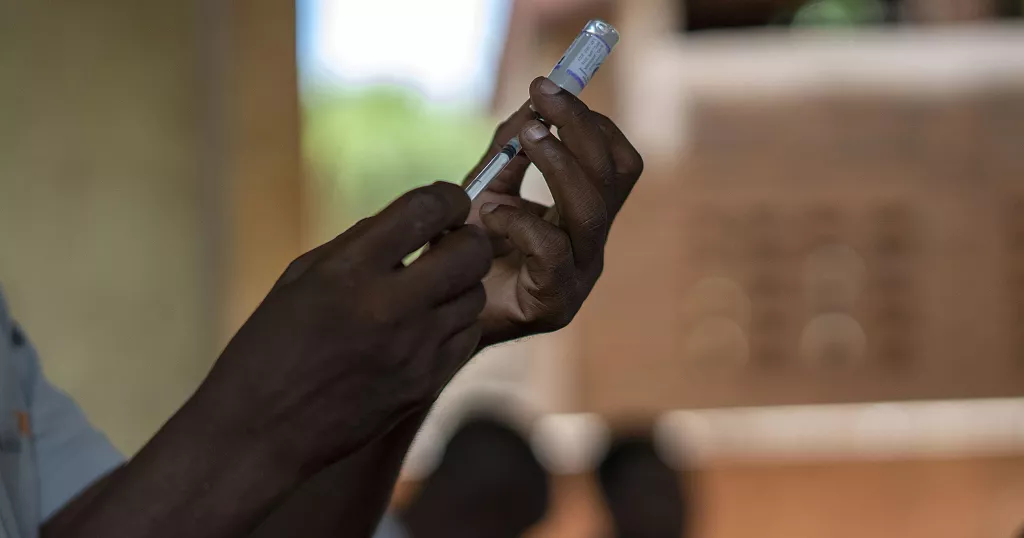Nigeria Launches New Malaria Vaccine Initiative
2 min read
Health officials prepare to administer a vaccine in the Malawi village of Tomali with the world's first vaccine against malaria in a pilot program in Tomali, Dec. 11, 2019

Health officials prepare to administer a vaccine in the Malawi village of Tomali with the world's first vaccine against malaria in a pilot program in Tomali, Dec. 11, 2019
Nigeria is set to become one of the first countries to introduce a new malaria vaccine, having received an initial shipment of 846,200 doses. This groundbreaking vaccine, known as R21, was developed by scientists at the University of Oxford in collaboration with the Serum Institute of India and Novavax.
Health Minister Muhammad Ali Pate emphasized that this delivery marks a significant milestone in Nigeria’s ongoing battle against malaria. The disease, transmitted to humans through the bites of infected mosquitoes, poses a severe public health challenge in Nigeria, where nearly 97 percent of the population is at risk.
The World Health Organization (WHO) identifies Nigeria as the country most affected by malaria, accounting for 31 percent of global deaths attributed to the disease. The prevalence of malaria is particularly high during the rainy season, when mosquitoes breed in stagnant water.
The newly procured vaccines will be administered at no cost to the population, with plans for a trial rollout in two states with the highest malaria burdens: Kebbi in the north and Bayelsa along the coast. Following this initial phase, the program is expected to expand nationwide, offering much-needed protection to millions at risk.
An additional 153,800 doses are set to arrive in Nigeria on October 26, which will bring the total number of available vaccines to one million. This initiative reflects a broader commitment to tackling malaria in Nigeria, a country where the disease continues to significantly impact public health and economic stability.
By prioritizing the vaccination rollout, Nigeria aims to significantly reduce the incidence of malaria and its associated fatalities. The health ministry’s collaboration with the international Vaccine Alliance, Gavi, highlights the importance of global partnerships in addressing health crises.
As the vaccine rollout begins, there are hopes that it will lead to a marked decrease in malaria cases, offering a brighter future for millions of Nigerians who have long battled this devastating disease. The success of this initiative could also serve as a model for other nations grappling with similar public health challenges.